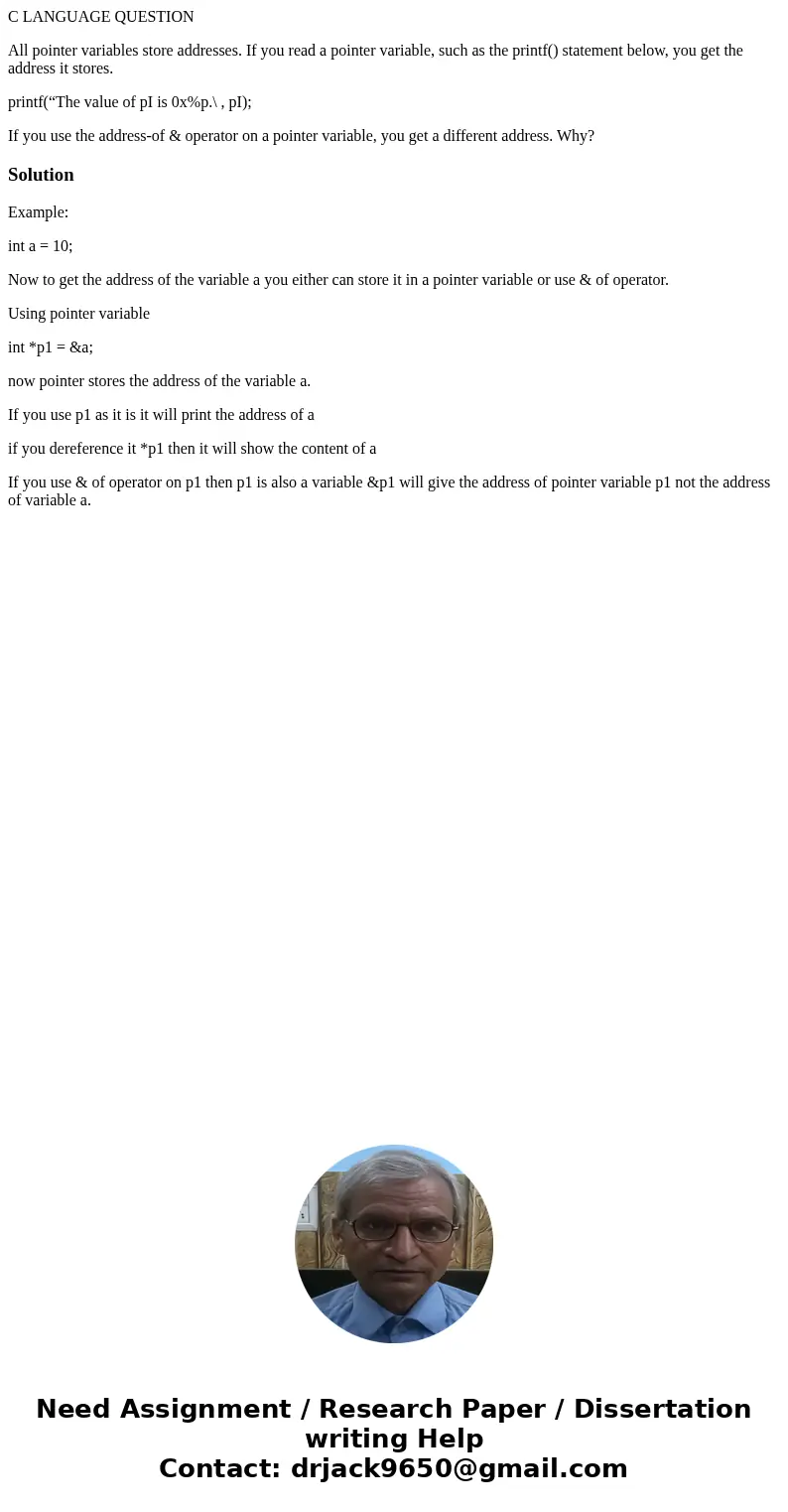C LANGUAGE QUESTION All pointer variables store addresses If
C LANGUAGE QUESTION
All pointer variables store addresses. If you read a pointer variable, such as the printf() statement below, you get the address it stores.
printf(“The value of pI is 0x%p.\ , pI);
If you use the address-of & operator on a pointer variable, you get a different address. Why?
Solution
Example:
int a = 10;
Now to get the address of the variable a you either can store it in a pointer variable or use & of operator.
Using pointer variable
int *p1 = &a;
now pointer stores the address of the variable a.
If you use p1 as it is it will print the address of a
if you dereference it *p1 then it will show the content of a
If you use & of operator on p1 then p1 is also a variable &p1 will give the address of pointer variable p1 not the address of variable a.

 Homework Sourse
Homework Sourse